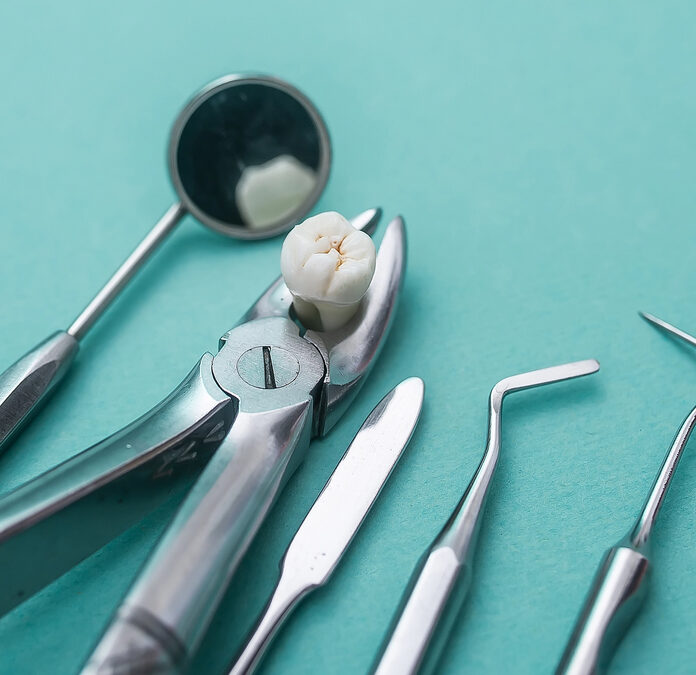Today we pick up where we left off last week, learning the reasons for tooth extraction, as well as alternatives and whether the procedure is painful. In last week’s blog, you learned about the most common reasons dentists recommend tooth extraction. Today we’ll tackle part two. Let’s dive in!
Are you concerned about the state of your oral health? Do you worry that you may need extractions or full mouth reconstruction? Our caring, gentle team wants to commend you on taking steps toward better oral and overall health by visiting our Naperville dentist’s office for an examination and consultation with Dr. Thomas Brown. The whole team looks forward to meeting you, making you feel welcome and respected, and helping you restore and manage good oral health for life! Call us today at (630) 296-5985 or schedule online.
Are there alternatives to extraction?
In some cases, yes. Dr. Brown and our team believe that tooth extraction should be a last resort. The more healthy natural tissue you can keep, the better. Manmade restorations mimic nature but do not offer the same benefits as healthy natural tissues.
If the reason behind extraction is orthodontic, expanding the palate may be a viable alternative for younger patients. A palate expander guides the upper palate toward outward growth, creating more surface area in the arch. In adults, the upper palate is rigid so palate expansion is not viable. An orthodontist may suggest alternatives for adults, like SARPE, IRP, or TADs (skeletal anchorage expanders, which are new).
When deep tooth decay, large cracks, or internal infection develop, there is a risk of infection entering the bloodstream and contributing to systemic health issues. Root canal therapy (RCT) will remove internal infection and seal the tooth, but the tooth will be dead. Retaining a dead tooth after RCT keeps occlusion intact and holds the space so that teeth don’t shift out of alignment. If RCT cannot salvage the damaged tooth, extraction may be the only option to restore good oral health. After extraction, a dental implant or bridge will hold the space to keep other teeth from shifting. Implants also help retain solid bone structure, reducing the risk for osteoporosis of the jawbone.
What if I delay treatment?
For orthodontic extractions, delaying treatment allows development to progress without guidance. Once a patient reaches early adulthood, the upper palate no longer responds to external guidance by way of a palatal expander. Therefore, delaying treatment can limit options.
When extractions are a prerequisite for dentures, infection can develop or progress unless the extractions are performed. The best way to support your good oral health is to follow through with treatment plans in a timely manner. If finances are a concern, talk to Dr. Brown’s treatment coordinator about insurance coverage or financing options.
When it comes to a significantly decayed or cracked tooth, delay of treatment has serious consequences. Since tooth extraction is a last-resort recommendation, postponing treatment will lead to more complex and traumatic dental issues. For instance, if a tooth is badly infected within its core, that infection can enter the bloodstream and impact systemic health. One example is with the oral bacteria called S mutans (explained in Part 1 of this blog series). When these bacteria enter the bloodstream, they can contribute to atherosclerosis, or hardening of the arteries. This occurs because the bacteria promote low-grade, systemic inflammation and platelet aggregation, which damage blood vessels.
Will tooth extraction hurt?
In the past, patients dreaded invasive dental procedures like extractions and root canal therapy, but times have changed–thank goodness! One of Dr. Brown’s primary concerns is keeping patients comfortable, mentally and physically, during procedures. Local anesthetic is usually sufficient to keep the patient physically comfortable throughout dental extraction.
For patients who feel anxious or fearful, the dentist offers IV sedation in our office. Dr. Brown is trained and experienced in administering IV sedation, and he has found that it helps phobic or stressed patients undergo the dental care they need for good oral and overall health. So no, tooth extraction doesn’t have to hurt!
Learn More About Tooth Extraction in Naperville, IL
If you’re worried about the state of your oral health, or you’d like a second opinion about a dental diagnosis, call us today at (630) 296-5985. You can also schedule your appointment online here. Don’t let fear or finances keep you from enjoying the lifelong benefits of good oral health and a strong smile! We are ready to walk with you on the path to better health.

